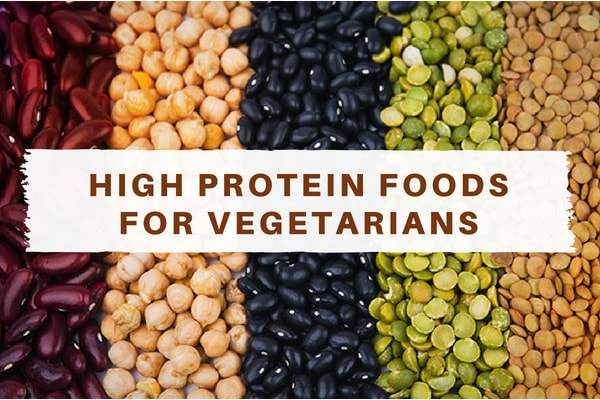Achieving optimal health as a vegetarian involves ensuring sufficient protein intake, essential for muscle repair, immune function, and overall vitality. At WellHealthOrganic, we advocate for a balanced diet rich in plant-based proteins that not only meet your nutritional needs but also enhance your well-being. Here’s a comprehensive guide to some of the best high-protein vegetarian foods to elevate your health:
1. Lentils
Overview: Lentils are nutrient-dense legumes packed with protein, fiber, and essential minerals like iron and folate. Protein Content: One cup of cooked lentils provides around 18 grams of protein. How to Incorporate: Use lentils in soups, stews, salads, and as a base for veggie burgers or meatless meatballs.
2. Chickpeas
Overview: Chickpeas, also known as garbanzo beans, are versatile and offer a hearty dose of protein, fiber, and complex carbohydrates. Protein Content: One cup of cooked chickpeas contains approximately 15 grams of protein. How to Incorporate: Make hummus, add chickpeas to salads, curries, or roast them for a crunchy snack.
3. Quinoa
Overview: Quinoa is a complete protein, containing all nine essential amino acids, along with fiber, vitamins, and minerals. Protein Content: One cup of cooked quinoa provides about 8 grams of protein. How to Incorporate: Use quinoa as a base for salads, grain bowls, or as a substitute for rice in various dishes.
4. Tofu
Overview: Tofu is a soy-based protein rich in calcium, iron, and magnesium, with a versatile texture that absorbs flavors well. Protein Content: A 3.5-ounce serving of tofu offers around 8 grams of protein. How to Incorporate: Use tofu in stir-fries, soups, smoothies, or grill and bake for a nutritious protein source.
5. Greek Yogurt (or Plant-Based Yogurt)
Overview: Greek yogurt is higher in protein than regular yogurt and contains probiotics for gut health. Protein Content: A 6-ounce serving of Greek yogurt typically provides 15-20 grams of protein. How to Incorporate: Enjoy Greek yogurt with fruits and nuts, or choose plant-based yogurt alternatives for a dairy-free option.
6. Beans (Black Beans, Kidney Beans, etc.)
Overview: Beans are rich in protein, fiber, and antioxidants, promoting heart health and digestion. Protein Content: One cup of cooked beans can contain up to 15 grams of protein, depending on the variety. How to Incorporate: Add beans to salads, chili, burritos, or blend them into dips like bean hummus.
7. Seeds (Chia Seeds, Hemp Seeds, Flaxseeds)
Overview: Seeds are nutritional powerhouses rich in protein, omega-3 fatty acids, and fiber. Protein Content: Chia seeds offer about 5 grams of protein per ounce, while hemp seeds provide around 10 grams per ounce. How to Incorporate: Sprinkle seeds on yogurt, salads, oatmeal, or blend them into smoothies for a nutrient boost.
8. Nuts (Almonds, Walnuts, Pistachios)
Overview: Nuts are packed with protein, healthy fats, vitamins, and minerals, supporting heart health and cognitive function. Protein Content: A quarter cup of almonds provides around 8 grams of protein. How to Incorporate: Enjoy nuts as a snack, sprinkle them on salads, or use nut butters in sandwiches and dressings.

